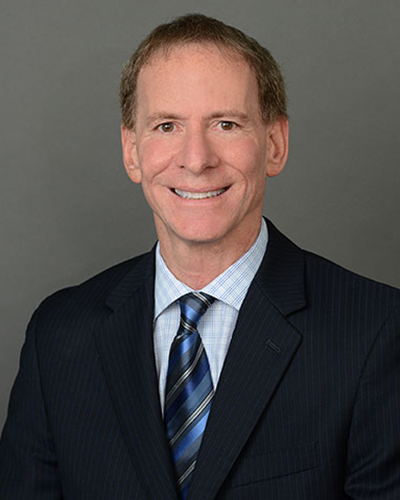The SBA, as administrator for the CARES Act, apparently took the position on April 3, that not-for-profit community associations within our country would not be eligible for the Paycheck Protection Program (PPP) loans or grants.
By Dennis J. Eisinger | May 12, 2020

The SBA, as administrator for the CARES Act, apparently took the position on April 3, that not-for-profit community associations within our country would not be eligible for the Paycheck Protection Program (PPP) loans or grants because of its determination that community associations (except those operating commercial, resort club or mixed-use communities) are not “businesses,” I vehemently disagree with its conclusion.
Community association operations clearly constitute a “business” by definition. They collect revenue through member assessments; they sometimes generate incidental income via other means; and, they incur substantial operational expenses for matters such as property and liability insurance, security, repairs and maintenance, supplies, landscaping, utilities, professional fees and management fees. Community associations, depending on their size, often have a significant number of employees and staff.
Community associations are a particularly important component of the residential housing market in certain states such as Florida, California, Arizona, Illinois, New York, New Jersey and Massachusetts, among other states. In the Sunshine State alone, more than 60% of Floridians, which is approximately 13 million people, reside in one of the 60,000 communities that are governed and operated by community associations such as condominium associations, HOAs and co-op regimes.
Virtually all of the community associations in Florida are established as not-for-profit corporations pursuant to Fla. Stat. Ch. 617. The failure to recognize the operations of these community associations, through their employees and agents, as legitimate small businesses is simply wrong and very detrimental to the community association industry and to all of the residents within these communities who are indirectly paying the salaries to these employees and agents.
In contrast, many major national businesses and professional sport teams have applied for and obtained these PPP loans/grants despite the fact that many simply do not have the financial need that these proceeds were intended for. The SBA determination is also clearly inconsistent with the purpose and intent of Congress as evidenced by the fact that Congress expressly provided PPP eligibility for Section 503c1 entities in the CARES Act.
Community associations are comprised of everyday individuals and hardworking families. The fact that they might own a condominium unit or townhouse within a condominium or HOA establishes them as a shareholder or member of these entities. I cannot think of a better way to help the economy than by permitting PPP monies to filter down to these deserving residents.
It is true that a small percentage of community associations are composed of affluent members but we can’t simply throw out the “baby with the bath water” by punishing the 90%-plus of other community association residents by denying them these essential funds in the midst of this health crisis and financial meltdown.
To date, more than 26 million people have filed for unemployment compensation in our country. This unprecedented spike in job loss will inevitably affect owners’ payment obligations to associations. We unfortunately expect a surge in assessment delinquencies across the board in the numerous community associations that my firm represents as a result of the pandemic. This will be exponentially compounded by moratoriums on foreclosures and evictions, which are already being applied by some judges in Florida to association foreclosure efforts, and may also result in a temporary reduction in real estate values. Bottom line, community associations throughout the country may soon find themselves in dire financial straits though we fervently hope that the financial problems will not be nearly as severe as those that occurred as a result of the ’06-’12 recession.
We have been counseling our association clients as to how to prepare for these problems, suggesting they enact a uniform collection policy (whether liberal or strict), and the possibility of offering payment plans to their members, although we certainly recommend that payment plans be relatively limited in duration as community associations still need to pay their bills. It is also quite important that an association avoid selective enforcement in connection with its collection process.
Associations must be mindful of their budgets and may need to consider curtailing any nonessential expenditures. They should investigate other means to generate capital such as through bank loans and/or through use of reserve monies; however, depending upon the constituent documents for the community, one or both of those alternatives may require an affirmative vote and approval by community members.
I understand that the Community Association Institute (CAI) had been lobbying Congress to reverse this injustice through the second phase of the PPP program, and other community association leaders including myself were doing same by contacting Congressional leaders. Unfortunately, those efforts to date have not been successful yet we must continue to attempt educate and sensitize our Congressional leaders and the SBA as to the awful impact this decision has and will have upon community associations and their residents.
Through our shared voice and perseverance, it is my hope that Congress and the SBA will take swift action to correct this problem through administrative determination and provide PPP monies to community association applicants. In the alternative, perhaps PPP funding can be extended to community associations in the next phase of the PPP program to the extent that another phase is forthcoming.
Dennis J. Eisinger is managing partner at Eisinger Law, a full-service Florida law firm focusing on community association law, real estate law, developer representation, commercial litigation, insurance law and estate planning.
